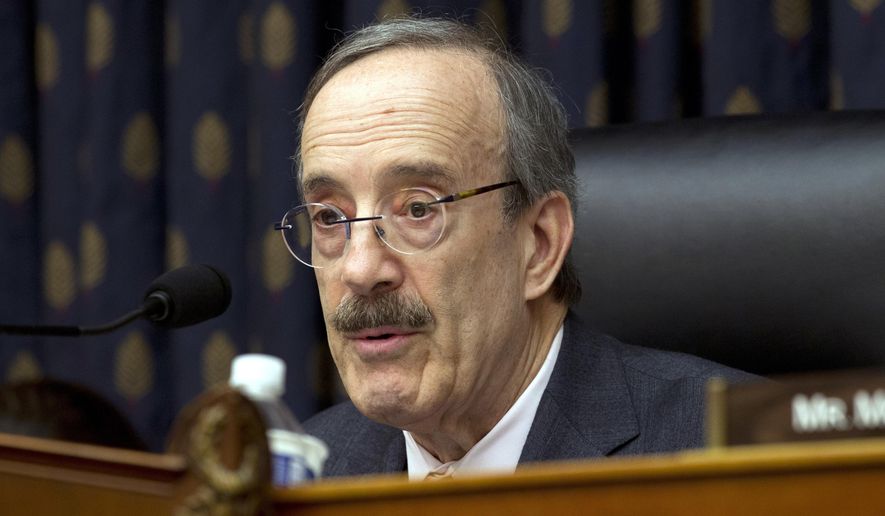The House late Wednesday voted to block several arms sales to Saudi Arabia and other Persian Gulf countries, nearly two months after the Trump administration cited a national security emergency in an effort to push the sales through.
Bipartisan groups of lawmakers in both the House and Senate backed three resolutions that would prohibit the sale of billions of dollars of U.S. weapons to Saudi Arabia and the United Arab Emirates without approval from Congress. Repeated reports of civilian casualties and humanitarian crises from the Yemen clash have fueled frustration in Congress and put the White House on the defensive.
Each bill, which is part of a suite of 22 total resolutions, specifically targets a necessary license for the export of 64,000 precision-guided munitions.
House Foreign Relations Committee Chairman Eliot Engel said on the House floor Wednesday that lawmakers are focused on these specific weapons because they would be the first shipped and said they risk being used against civilians by the Saudi-led coalition in Yemen.
” ’Reckless’ doesn’t begin to describe it,” the New York Democrat said. “It’s gruesome. It’s contributed to the worst humanitarian crisis in the world.”
His Republican colleague, however, countered that prohibiting the licenses would stop the U.S. from “providing our partners with the arms they need to defend themselves.”
Citing heightened threats from Iran, the White House in May invoked provisions in the Arms Export Control Act that allow the president to waive congressional review of foreign arms sales. The administration said that funneling arms to regional allies such as Saudi Arabia and the United Arab Emirates was vital to keeping Iran and its proxies in check, while lawmakers argued that the multi-billion dollar deals require congressional approval.
“Rather than come and make their case to Congress, the administration invented a phony emergency to bypass the legal process for approving arms sales,” said Rhode Island Democrat David Cicilline on the House floor Wednesday.
“There is no justification for this decision other than the administration knew that these sales would be met with scrutiny from Congress and didn’t want to deal with it. They were right,” he added.
Opposition to Saudi arms sales has expanded since Congress restricted roughly $2 billion worth of weapons over concerns the kingdom was using them in the military campaign in Yemen and in response to the murder of U.S.-based journalist Jamal Khashoggi, an outspoken Saudi dissident.
Rep. Adam Kinzinger, an Illinois Republican who sits on the House Foreign Affairs Committee, was one of several Republican lawmakers who argued against the bills and said on the floor that at least one shipment of the munitions is already en route to its destination and a second is scheduled for shipment in September.
“Iran and the forces it supports … are a threat to our national security and the security of our allies,” he said.
The latest resolutions, which have already been approved by the Republican-held Senate, represent a major rebuke of the administration’s stance toward Riyadh. They follow April’s clash in which Mr. Trump issued only the second veto of his presidency to strike down a resolution calling for an end to U.S. support for the Saudi-led military campaign in Yemen.
Mr. Trump is likely to veto the measures, which were approved in three votes along party lines, and would be the third of his presidency and the second regarding Saudi Arabia.
The Senate Foreign Relations Committee next week will examine two competing bills introduced by the top Democrat and Republican on the panel.
New Jersey Sen. Robert Menendez, the committee’s ranking Democrat, is making another push to block arms sales to Saudi Arabia and imposes sanctions on those responsible for Khashoggi’s murder.
Committee Chairman James Risch, Idaho Republican, introduced a competing bill that revokes the visas of members of the Saudi royal family.
• Lauren Toms can be reached at lmeier@washingtontimes.com.




Please read our comment policy before commenting.